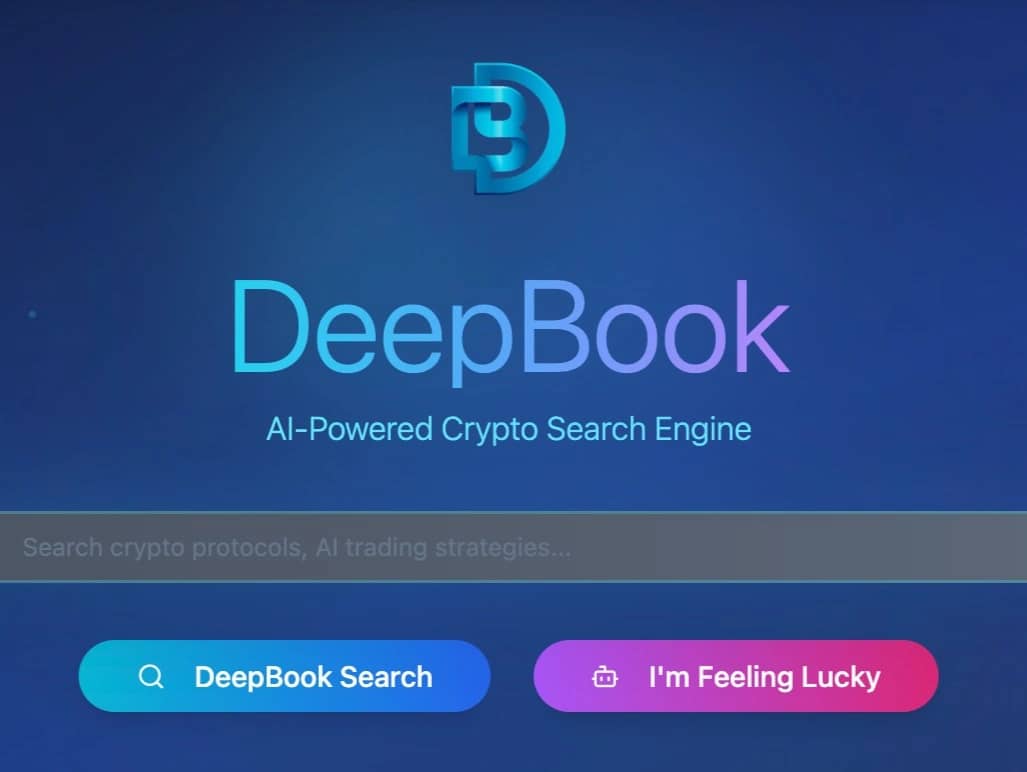订阅 wiki
Share wiki
Bookmark
Deepbook AI
0%
Deepbook AI
Deepbook 是一款加密浏览器,专为与去中心化网络交互而设计,专注于速度、安全性和集成人工智能以进行发现和交易。它旨在为用户提供一个平台,用于浏览去中心化应用程序 (dApps)、管理数字资产并在 DeFi 生态系统中执行交易。 [1]
概述
DeepBook AI 是一款下一代加密浏览器,它将区块链技术和人工智能集成到一个用户友好的平台中。它提供了一个原生的 Web3 环境,允许用户探索去中心化应用程序、管理加密钱包并进行安全交易,而无需依赖多个扩展或外部工具。该浏览器配备了 AI 功能,提供实时市场分析、见解和智能合约安全警报,充当导航加密生态系统的智能助手。DeepBook AI 支持多个区块链,包括 Ethereum、Solana、Polygon 和 BNB Chain,从而实现无缝的多链交互。它的设计通过去中心化身份、端到端加密和零知识证明 强调隐私和用户控制,使其适合寻求安全高效访问去中心化金融和交易的新手和经验丰富的用户。 [2]
特点
DeepBook AI 具有内置的非托管钱包,支持多个区块链,包括 Ethereum、Solana、BNB Chain 和 Polygon,允许用户管理资产、进行代币交换、跟踪投资组合和查看交易历史记录,而无需第三方扩展。其集成的交易界面与去中心化交易所聚合器连接,以促进优化的加密交易,提供限价/市价单和滑点控制等工具。
原生的区块链浏览器使用户能够以人类可读的格式和智能合约验证来查看和过滤链上活动。该浏览器还通过生物识别身份验证、硬件钱包支持、沙盒交易签名以及针对潜在恶意合约或网络钓鱼尝试的警报来优先考虑安全性。
通过跟踪器阻止、Tor 路由、私人浏览会话和零知识证明协议来维护隐私。市场分析以实时方式显示,提供有关代币价格、gas 费用、交易量和来自大型钱包的活动的数据。用户可以访问和交互精选的 dApps 库,每个 dApp 都在隔离的容器中运行,以提高安全性。
其他工具包括用于导航 Web3 和解释智能合约的 AI 助手、直接嵌入核心功能的无扩展设计以及用于存储敏感信息的安全加密保险库。DeepBook 还提供跨钱包和链的投资组合跟踪、原生跨链桥接、可自定义的界面以及浏览器内针对关键区块链事件的警报。 [3] [4]
DEEP
DEEP 代币充当 DeepBook AI 平台内的主要实用和治理资产。它用于支付与钱包操作、dApp 使用、代币交换、桥接和智能合约执行直接在浏览器中相关的交易费用。用户还可以将 DEEP 用于微服务、API 调用和 NFT 相关服务。高级浏览器功能,包括高级 AI 工具(如预测性见解和智能合约分析),可通过基于 DEEP 的订阅访问。该代币通过允许持有者对涉及功能推出、费用结构、国库使用和产品开发的决策进行投票来实现去中心化治理。
质押 DEEP 提供对协议奖励、流动性激励和福利的访问权限,例如提前访问功能、增强的投票权和空投资格。通货紧缩机制从每次交易、订阅或付款中移除一部分 DEEP,从而随着时间的推移减少供应。该代币还通过激励社区贡献者、开发人员以及错误赏金和教育计划的参与者来支持平台增长。未来的扩展计划包括将 DEEP 集成到外部生态系统中,以用于代币交换、忠诚度计划和链下应用程序,如活动访问或 NFT 票务。 [5]
代币经济学
DEEP 的总供应量为 10B 个代币,并具有以下分配: [6]
- 生态系统激励: 33%
- 质押奖励: 22%
- 流动性 CEX & DEX: 9%
- 营销/合作伙伴关系: 6%
- 合作伙伴和顾问: 4.8%
- 测试网激励/空投: 4.5%
- 国库和储备: 4.2%
- 团队和开发: 4.2%
- 天使: 3.5%
- 私募 1: 2.8%
- 公开: 2.5%
- 私募 2: 2.3%
- KOL: 1.2%
合作伙伴
- 迪拜区块链实验室
- Animai
- Coin Nest Investments
- Catalyst Ventures
发现错误了吗?
